Fixed vs variable home loans. It’s a conversation every homeowner is going to have when organising finance for their new home. Picking between fixed or variable loan will depend on a few things. Primarily, what the lender is willing to offer, the current interest rate, and the type of loan.
Luckily, Darren Walters, CEO and Founder of No1 Property Guide, has more than 20 years’ experience in property, real estate, and lending policies. Using this experience, he has put together this guide to break down everything you’ll need to know about fixed vs variable home loans.
What is a Fixed Rate Loan?
A fixed-rate loan is where the interest on the loan is fixed at a rate determined when the loan is taken out. Or whenever you choose to make it fixed.
The rate you get will depend mainly on 2 things:
- The time the loan is taken out (or the time you choose to go fixed)
- And the current interest rate.
If lenders think the interest rate is likely to drop in the near future, they might set the fixed rate to be a bit higher than the current variable rate. But if they think it might rise then they’re likely to set it lower than the variable. Of course, each loan and rate can vary, so you’ll need to discuss it with your lender to get the full picture.
Generally, fixed rates won’t be an option for the entire loan. And they’ll be capped for a period of time, usually between 1-10 years. At the end of the fixed-rate term, you’ll either go to a variable rate, or you can try negotiating another fixed rate with your lender.
How Does a Variable Loan Work?
A variable rate home loan means your interest rate will rise and fall depending on market conditions. This will usually be when the RBA raises or lowers the national rate. Variable loans are often more flexible as lenders will give you a greater range of options if you opt for a variable rate. Like being able to redraw additional payments made or paying off the loan early with no additional fees.
Of course, as the name suggests, the interest on a variable loan can change at any time. This means it’s harder to budget for an extended period. Of course, if the interest rate goes down, you’ll be saving money, so there are benefits to a variable loan as well.
As a general rule, the variable rate when you get your mortgage will be lower than the fixed rate. But over time this could change. So make sure you consult with a finance specialist to see which option is right for you.
Which Choice Does No1 Property Guide Recommend?
At the end of the day, the decision rests on you. We always recommend you seek professional financial advice before making this decision.
A fixed loan gives you a clear idea of what your repayments will be at any point. But you’ll miss out on any drops in the interest rate. On the other hand, a variable home loan allows you to take advantage of any drops in the interest rate potentially saving you money.
Of course, if it goes up instead you may end up paying more. There’s also the potential for some uncertainty around your mortgage repayments.
Though this is more of a long-term issue as the interest rate doesn’t change that often. So payments will be “fixed” between interest rate changes.
One thing to note is that using Darren’s no or low deposit system, you will be on a variable rate throughout the construction of your new home. This is due to how lenders treat construction mortgages and it’s something that is standard across all lenders in the industry.
Once the construction phase is over you can negotiate with your lender if you want to go onto a fixed-rate loan.
Read more about – Fixed vs Variable Home Loans:
- 4 Tips on How to Plan an Edible Garden
- Say Goodbye to the Hunt for Pet Friendly Rentals
- What Do You Need for a Home Loan?
Still Can’t Decide Between a Fixed vs Variable Home Loan?
If you still can’t decide between a fixed or variable loan, consider a split mortgage. These are a fairly common option, and they allow you to change between fixed or variable at designated timeframes. This gives you the flexibility to take advantage of low interest rates while you can. Or take a risk with a variable loan with the additional benefits.
Ask your lender about what options they have available for you. Some will offer 50:50 splits, but it can vary from lender to lender.
How Do I Start?
The first step to getting your own home with no or low deposit is to complete our pre-qualification form. This enables our New Home Specialists to start finding house and land packages that suit your borrowing capacity.
Once you’ve chosen your package and have been approved for finance, you can discuss fixed vs variable loans with your lender.
Both options have pros and cons and it will come down to your own financial situation as well as your lender to determine which option is best for you.
Contact us today to find out more about fixed vs variable home loans. Our New Home Specialists can help you get into your own home sooner.


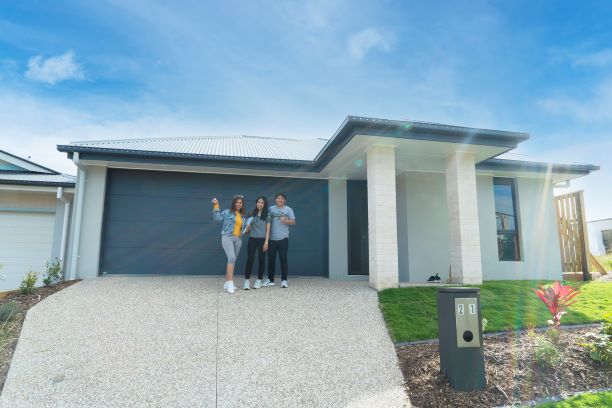
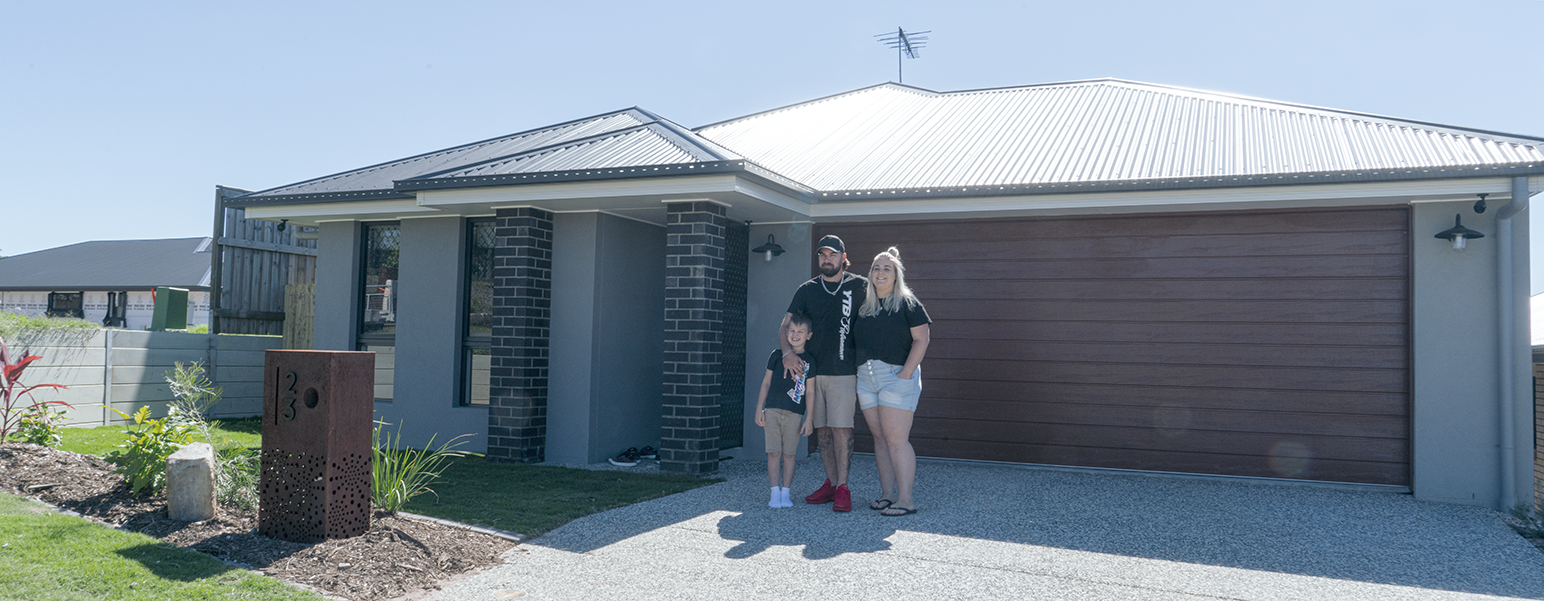
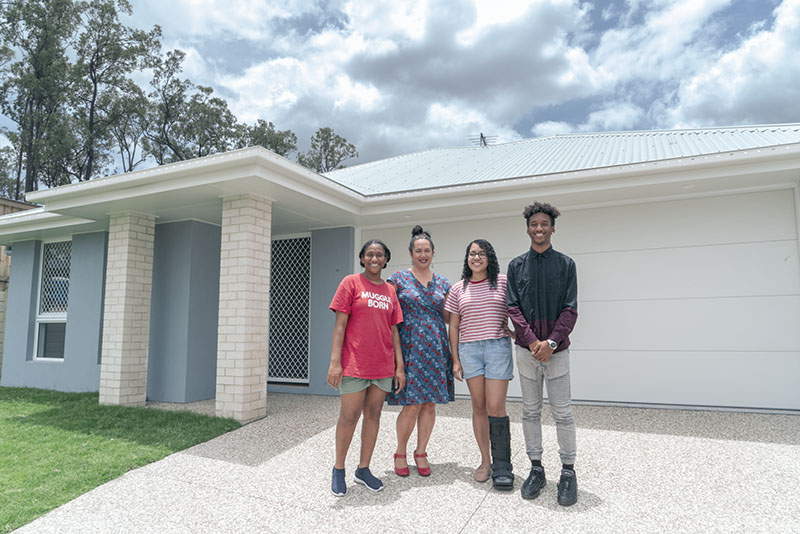
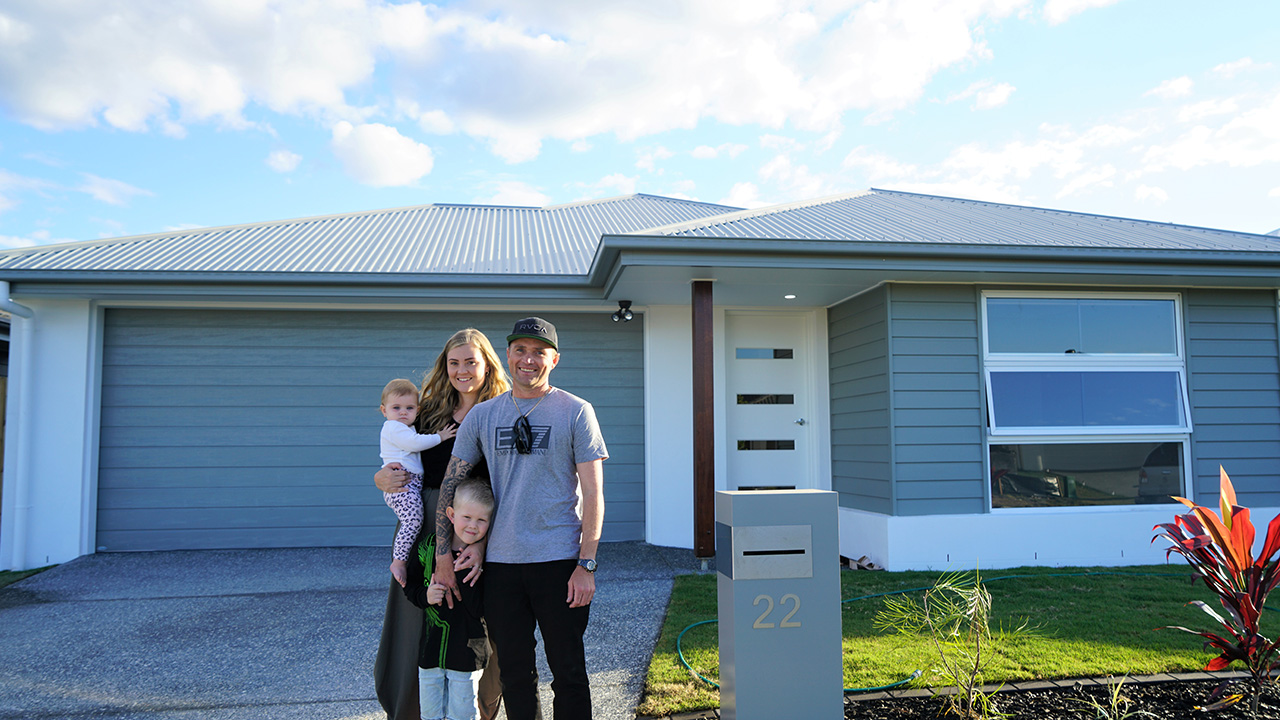
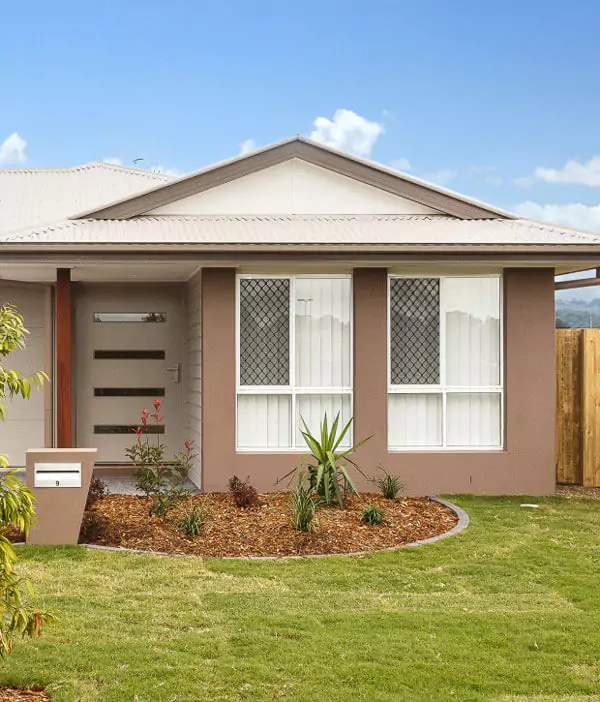
Leave a Reply
You must be logged in to post a comment.